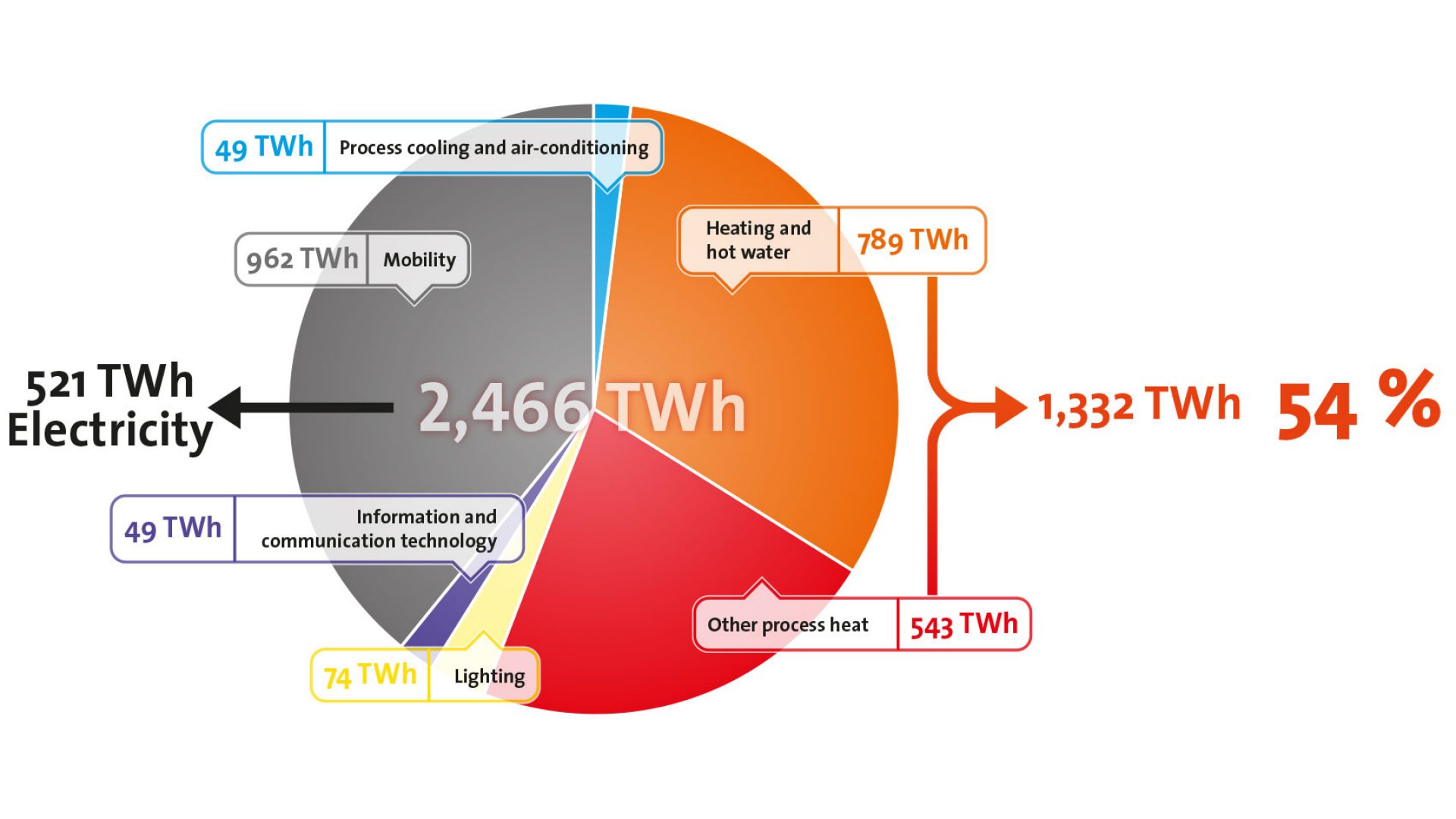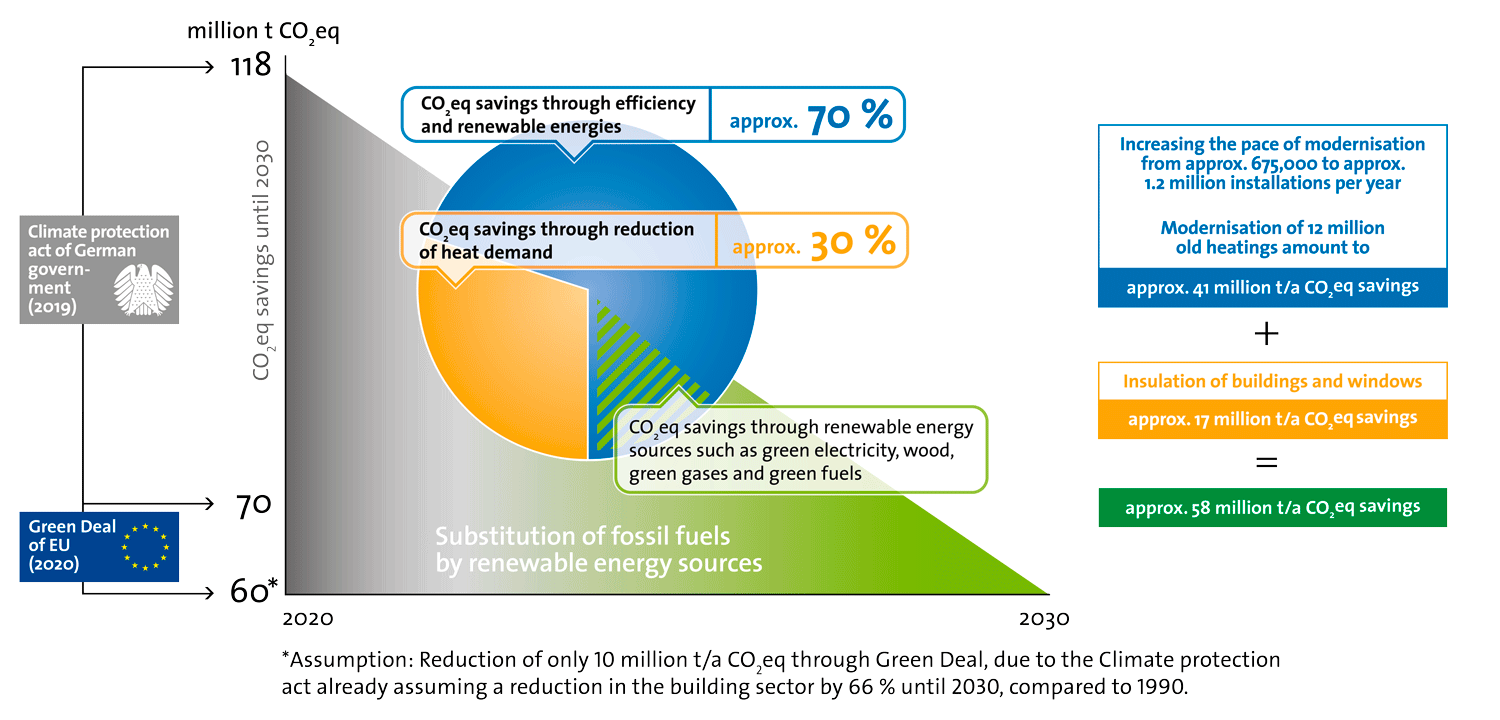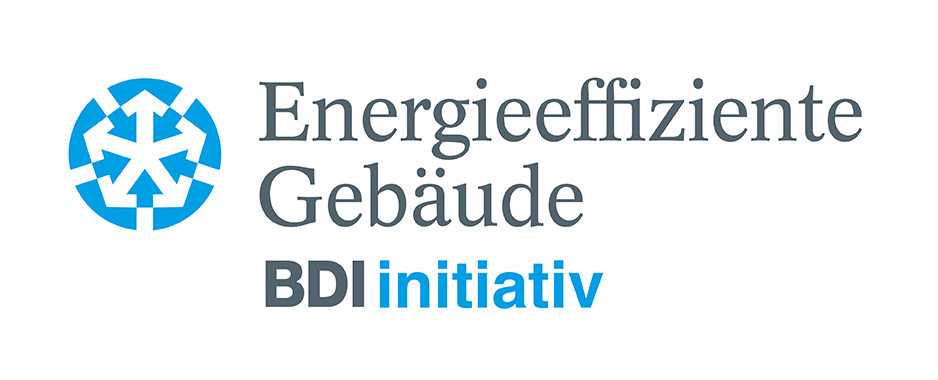The Paris Climate Agreement of 2015 is the climate policy basis for the Green Deal that the EU adopted under Commission President Ursula von der Leyen in September 2019.
The Green Deal aims to make the EU economy more sustainable, resource-friendly and efficient. The ambitious goal of making Europe the first continent to achieve climate neutrality by 2050 is of paramount importance for the European and German heating industries. According to the decision of the European Council of 11 December 2020, the CO2 emissions are to be reduced by at least 55 % by 2030 compared to the emission levels from 1990.
These ambitious goals can only be achieved if the heating market is taken into account. After all, roughly a third of European and German final energy consumption is accounted for by heat generation in buildings. If industrial process heat is also taken into account, the heating sector accounts for over 50 % of Germany's final energy consumption.
In order to achieve this 2030 goal extensive measures in the building sector are required:
- Modernisation of the old installation stock: There are around 12 million outdated heating systems in German boiler rooms. These must be modernised at an accelerated pace and replaced with modern heating systems. The maximum potential can be realised if, in addition to heat generation, heat distribution, heat transfer and storage are also modernised. In order to achieve the 2030 goals, the current replacement rate must be doubled from about 3 % today to 6 %.
- Changing the energy mix in the heating market: Changing the energy mix in the heating market: The Acceleration of the expansion of low-carbon and/or carbon-free energy sources. These include:
- Green gases as well as Green and Blue Hydrogen
- Green fuels with biogenic and synthetic components, such as power-to-liquid products
- Increase in the green share of the electricity mix, coupled with increased use of heat pumps
- Increased use of wood energy in the heating market as a domestic and CO2-neutral resource
Reduction of the heat demand: Measures for the building envelope, including in particular insulation and windows, also contribute to CO2 reduction.
BDH Wahlprüfsteine PDF-Datei, ca. 800 KB
BDI-Stellungnahme Klimaschutzprogramm 2030 – Gebäude PDF-Datei, ca. 290 KB
BDI Position – Renovation Wave PDF-Datei, ca. 170 KB
Broschüre „Effiziente Systeme und erneuerbare Energien“ PDF-Datei, ca. 15 MB
Förderübersicht BEG PDF-Datei, ca. 40 KB
geea – Politkbrief November 2020 PDF-Datei, ca. 600 KB
BDI-Forderungen 2021-2025 Klimaschutz bei Gebäuden PDF-Datei, ca. 200 KB
geea – Eine starke Plattform für die Energiewende im Gebäudesektor PDF-Datei, ca. 3 MB




